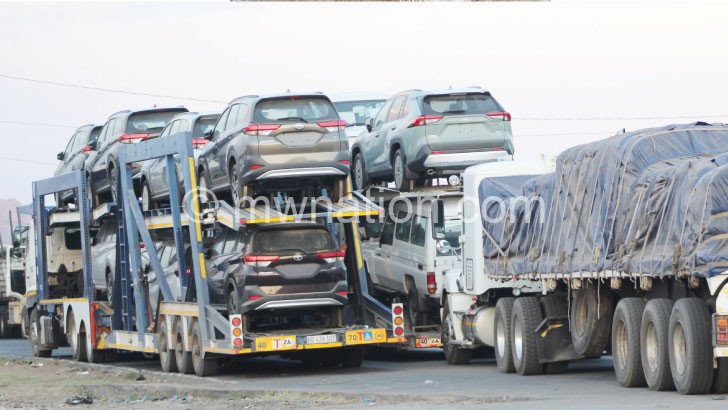GOVT, experts differ ON AfCFTA benefits
Ministry of Trade and trade experts have differed on economic benefits to be accrued from the African Continental Free Trade Area (AfCFTA) touted to be the largest single market in Africa.
The AfCFTA is a free trade arrangement established by African countries to conduct trade without charging each other customs duties.
While the ministry remains upbeat that the country will benefit from the continental free trade area, some experts argue that the country has too little to export.
The experts further argue that the country will be on the losing end while other economically advanced African countries will reap maximum benefits at a time the country will be playing catch up.

One of AfCFTA key objectives is to eliminate existing non-tariff barriers and refrain from issuing new ones to enhance and facilitate intra-Africa trade.
But in an interview on Wednesday, Minister of Trade Sosten Gwengwe described the fears as academic, arguing that the government has done its homework that shows AfCFTA benefits largely outweigh the challenges.
He argued that the country has quality agriculture-based products that can favourably compete at the regional and global markets, but that the private sector looks down on itself by feeling comfortable with the domestic market.
Gwengwe said the ministry is deepening linkages with the private sector so that with financial support from both World Bank and Africa Export and Import Bank, companies will be supported to strengthen production capacities targeting AfCFTA as well as cushioning the economy from revenue losses.
He said: “A fully implemented AfCFTA will create opportunities to establish regional and global value chains and promote industrial development. We will capitalise on agriculture-based food products to feed into the African food deficit.
“As Africa industrialises, there will be more demand for raw materials, raw or semi-processed. Malawi stands to benefit as an intermediate in these value chains apart from producing finished goods in her own right.”
But in a written response on Wednesday, National Working Group on Trade and Policy chairperson Frederick Changaya said there are many demerits of AfCFTA than what merits the country’s participation.
He said: “The major merit is a bigger market opportunity. The key question is: Can we meaningfully participate now and in the medium-term? Even in the long-term? I think the answer is no.
“This is for obvious reasons that our economy will remain less competitive for a long time unless revolutionary policies are rolled out and sustained for a little longer.”
Changaya called for revolutionary policies, especially for local industries and against corporate governance lapses in State-owned enterprises that have huge fiscal impact such as Electricity Supply Corporation of Malawi, National Oil Company of Malawi and Malawi Revenue Authority, among others.
He observed that Malawi is one of the countries with high energy and finance cost; hence, industries are small and lack economies of scale, leading to high unit cost of production.
In its recent analysis of AfCFTA, Malawi Confederation of Chambers of Commerce and Industry (MCCCI) noted that while there are greater trade and market opportunities to be born out of the market, there are serious trade risks that need to be addressed.
For example, the analysis pointed out that removal of tariffs means businesses will lose revenue and that serious measures to mitigate the losses needed to be employed.
Apart from the anticipated losses, the MCCCI said there has been no national strategic vision on the AfCFTA implementation plans to achieve the objectives.
However, Gwengwe explained that there is a grace period of 10 to 13 years before complete tariff liberalisation and that the national AfCFTA strategy is being worked on, currently in draft form, which will outline how the country will leverage on the AfCFTA market and trade opportunities.
United Nations Economic Commission for Africa director for Southern Africa Said Adejumobi recently acknowledged that there are fears on competitiveness of local industries due to liberalised markets and the issue of jobs associated with it and government revenue losses.
He, however, said AfCFTA will strengthen Africa’s voice, capacity and space in the international economic environment that could shift the balance on the logic of comparative advantage to competitive advantage for many African countries.
Figures show that 85 percent of goods traded in Africa come from outside the continent and only 15 percent of goods traded in Africa are produced locally.
So far, a total of 54 out of 55 countries have signed the AfCFTA agreement.




